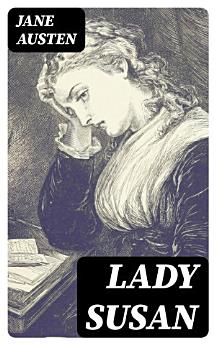Lady Susan
Sep 2022 · DigiCat
Kitabu pepe
57
Kurasa
family_home
Kimetimiza masharti
info
reportUkadiriaji na maoni hayajahakikishwa Pata Maelezo Zaidi
Kuhusu kitabu pepe hiki
In "Lady Susan," Jane Austen crafts an incisive and witty epistolary novel that delves into the complexities of romantic entanglements and societal norms of the Regency era. The narrative revolves around the cunning and charming widow, Lady Susan Vernon, as she navigates the treacherous waters of courtship, manipulation, and social ambition. Through her characteristic irony and keen observation, Austen reveals the intricacies of human relationships, elevating dialogue and character interaction to artful reflections on morality and ambition while maintaining a light yet critical tone that embodies her literary style. Jane Austen, a pioneering figure of English literature, wrote "Lady Susan" in the mid-1790s, although it would not be published until after her death in 1871. Her experiences as a woman in a patriarchal society and her keen insight into social dynamics are vividly expressed in this work. Austen's acute awareness of the constraints faced by women in matters of marriage and independence provides a compelling backdrop that informs Lady Susan's manipulative yet enthralling character, making the narrative both a personal and societal commentary. Recommended for readers who appreciate sharp wit, complex characters, and nuanced social critique, "Lady Susan" is a remarkable exploration of the intersection between love, power, and societal expectation. Austen's early work serves as a precursor to her later, more polished novels, offering a fascinating glimpse into the author's evolving perspective on romance and female agency.
Kuhusu mwandishi
Jane Austen (1775-1817), a paragon of British literature, is renowned for her poignant social commentary, eloquently drawn characters, and her incisive exploration of the Georgian-era woman's position within the rigid structure of society. Born on December 16, 1775, in Steventon, Hampshire, Austen was tutored mostly at home and began to write in bound notebooks. While Austen's major novels, including 'Pride and Prejudice', 'Sense and Sensibility', and 'Emma', have cemented her place in the literary canon, works such as 'Lady Susan' stand as a testament to her formidable skill in epistolary fiction and ability to deconstruct the complexities of moral dilemmas faced by women. 'Lady Susan', often noted for its distinctively wicked and manipulating titular protagonist, diverges from Austen's usually more morally conscious heroines, offering readers a sharp-witted and satirical look at the artifice ingrained in aristocratic relationships. Austen's mastery of free indirect discourse and her ironical narrative voice has greatly influenced the development of the novel as a form. Her work continues to be revered for its timelessness, wit, and its astute scrutiny of social dynamics. Jane Austen's death on July 18, 1817, left the literary world with an enduring legacy that continues to attract and inspire both readers and scholars alike.
Kadiria kitabu pepe hiki
Tupe maoni yako.
Kusoma maelezo
Simu mahiri na kompyuta vibao
Sakinisha programu ya Vitabu vya Google Play kwa ajili ya Android na iPad au iPhone. Itasawazishwa kiotomatiki kwenye akaunti yako na kukuruhusu usome vitabu mtandaoni au nje ya mtandao popote ulipo.
Kompyuta za kupakata na kompyuta
Unaweza kusikiliza vitabu vilivyonunuliwa kwenye Google Play wakati unatumia kivinjari cha kompyuta yako.
Visomaji pepe na vifaa vingine
Ili usome kwenye vifaa vya wino pepe kama vile visomaji vya vitabu pepe vya Kobo, utahitaji kupakua faili kisha ulihamishie kwenye kifaa chako. Fuatilia maagizo ya kina ya Kituo cha Usaidizi ili uhamishe faili kwenye visomaji vya vitabu pepe vinavyotumika.








